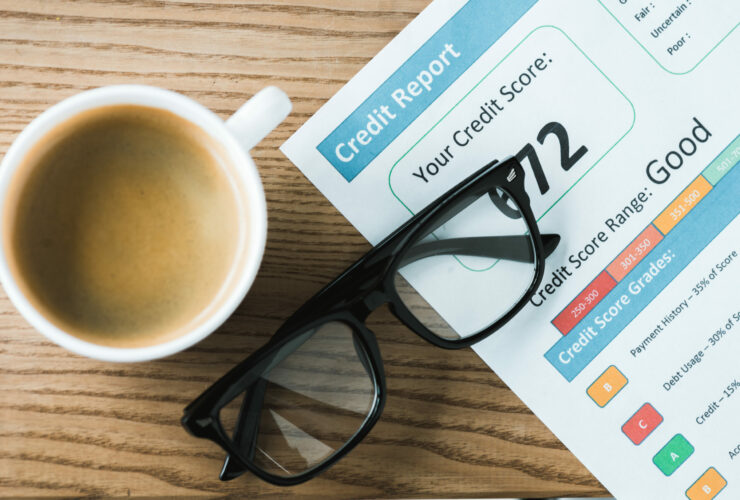10 Questions You Should Ask Your Broker
Taking out a home loan in Australia can be tedious and it’s partly because there are so many options. There are grants for first home buyers, multiple loan offers from different banks, different features per home loan, and so on.
You can definitely navigate this alone. Just check out each bank that offers a home loan. Get all of the product information and compare each one to another on an Excel table. But.. take this piece of advice and contact a mortgage broker to save time and ensure that you only get the best out of the best.
A mortgage broker’s duty is to connect you to a lender that best suits your financial situation and needs.
Brokers know a ton of information about home loans from lenders, even those that are on the fine print. And even those that are not. They get this from experience.
They can also help you find the right product for your specific situation. An ability that also stems from years of experience. If you think your case is different and difficult, there is a high chance the broker you will talk to has already helped a client with the same situation.
For example, if you have a relatively low credit score, don’t give up on the idea of getting a home loan in this lifetime. Brokers know full well that there are options specifically made for people with low credit scores.
Before you settle with a one mortgage broker, you have to shop around. This is no different from trying to get the best value for money in a grocery aisle. Make sure that you are comfortable with the broker that you choose so you can comfortably share with them your financial situation.
There are niche lenders out there, you just might not know it.
Be careful when choosing a mortgage broker. Make sure they come from a reputable broker agency and have the licence to perform broker duties. When it comes to fees, it’s either you pay them directly for their service or it’s the banks and lenders that pay them.
Once you find one, here are ten questions you should ask your broker to ensure you are on the path to getting a good loan deal.
#1 Which loan is the best?
Your mortgage broker will ask you a lot of questions in this whole process. When it’s your turn to ask, do ask which loan they think best suits your situation. Of course, they will gladly explain why.
The loan that they recommend to you is based on the information the broker got from you. Your income, whether you are a first home buyer or not, the assets that you have, and your future plans are all a factor.
You can also ask your broker if you are qualified for any government grant. Currently, there are grants that have very specific eligibility requirements. Your broker will assess if can qualify for any of these.
Some government guarantees you may qualify for:
New Home Guarantee
This is a guarantee scheme for first home buyers where the government will guarantee a portion of the purchase price. This will in turn lessen the deposit that you need to save up for your first home.
Family Home Guarantee
This is a government grant for single parents. Eligible single parents with dependents. This grant allows you to only put down a 2% deposit on a new or existing home. One of the requirements is that your income must not exceed $125,000.
First Home Super Saver Scheme
This government aid will allow you to tap into your superannuation funds for the purchase of your first home. You can apply to release $15,000 of your contributions for every fiscal year to the purchase of your first home. The limit will be $50,000 across all years starting July 2022.
There are also state-specific concessions that you can ask your broker about.
You can also ask your broker about the difference between and benefits of variable-rate and fixed-rate loans.
#2 How many lenders do you have access to?
Another good thing to discuss with your broker is the lenders they have access to. There are different types of lenders including bank and non-bank institutions. It matters that your broker has access to quite a number of lenders.
A large pool of lender choices means higher chances of getting a good deal. It will bring you comfort knowing that you have a lot of choices. Although, this is not to say that brokers with hundreds of lenders on their panel are better than those with just 50. There is no magic number but you get the idea. After all, what matters is how much the broker understands your situation to match you with the right lender.
#3 What rate can I qualify for?
Now, you have to get down to the most important question of all. The rates available to a loan applicant are dependent on so many factors.
- Credit score
Your credit score reflects how trustworthy you are when it comes to borrowed money. Of course, the higher your credit score is, the better the banks or lenders will trust you with a huge sum.
- Loan amount
Lenders also base their rates on the maximum loanable amount, so it’s important that in the very beginning, you have an idea of how much your home costs.
- Down payment
The bigger the down payment you have, the less risky it is for lenders. If you have a sizable down payment, the bank may cut you some slack by offering low rates.
- Loan term
The loan term also affects your rate. The shorter you choose to pay your loan, the lower the interest rate is.
Even a 0.5 difference in rates can add or subtract thousands of dollars on your expenses for the next 15 or 30 years.

#4 What documents should I prepare?
Your broker will never fail to mention the documents that you need to have ready for your loan application. However, the earlier you know, the better that you can prepare. If you want to know before even finding a broker, here are the documents you need to ready:
- Proof of identity
- Any valid government-issued ID can be used: passport, driver’s licence, proof of age card, or Australian tertiary institution card.
- If you only have one form of ID, you will need to provide supporting documents: your birth certificate, citizenship certificate, Centrelink pension card, Medicare card, utility bills, or tax assessment notice
- Proof of income
- For employed applications: Two latest payslips or a certification signed by your employer stating how long you’ve been employed, your gross and net income, and allowances.
- For self-employed applicants: income tax returns from the last two financial years and most recent Assessment Notice. You can also submit any proof that you receive allowance or benefits from family. Confirmation of income generated from investments can be submitted, too.
- Expenses
- Details of rent payments
- Utility bills
- Council rates
- Include all other expenses like school fees and child support payments
- Assets
- Bank statements that reflect savings history.
- Details of any assets owned.
- For properties owned, provide copies of rates charged to renters.
- Liabilities
- For existing mortgage owners, provide recent loan statements.
- For credit cards, personal loans, and car loans, provide the latest statement.
If you have already identified the property you are taking out a loan for, you can also prepare early copies of the contract, certificate of title, and certificate of land transfer.
#5 What fees will I be charged?
Even presents come with strings, so as early as consultation, ask your broker about the fees. A good broker will refrain from using jargon and will make sure that you truly understand where your money will go. There are loan products that charge no fee so you might want to inquire about that.
If you have already done research on some loan products before, you can ask the broker their opinion on these loans. If you have chanced upon a “no fee” offer, ask your broker about it. They can help you identify if the “no-fee” promo is worth it.
You can also ask your broker for lender recommendations. With their long years of experience, they know which lenders are generous when it comes to fee discounts.
You can also ask for a list comparing all fee estimates per lender to make your decision-making easier.
#6 What is the expected closing time frame?
If you have already sold your home or you want to stop making rent payments, better ask your broker. From application to approval, there is no fixed number of days.
Plus, there are factors that affect the closing time frame. Sometimes, assessors spot an inconsistency in your documents and raise a red flag. In that case, the length of time will be extended for a few more days.
There are also different types of loan approvals. A pre-approval can be given to you instantly but is not binding. Conditional approval can be given to you after you submit an application form along with supporting documents. These documents must prove that you are capable of repaying the loan amount. It’s called conditional because it depends on the property you choose to purchase. Full approval is when both you and the property are approved by the lender. You can finally make an offer in an auction when you have this.
#7 Can I lock the rate?
Some lenders offer to lock your rate from approval to settlement. This means that if the rates change from the date of approval, the rate you will be charged will not change. Some lenders offer this for free and some charge a rate lock fee.

#8 How can I repay my loan faster?
The longer you take to pay your loan, the slower your home will become yours. The key to owning your house faster is to make as many extra repayments as you can. You will also be able to save on interest rates the faster you pay off your loan.
If this is your plan down the line, you have to inform your broker as early as now. This will be one of the factors to consider is the kind of loan you will be getting.
Traditionally, only variable-rate loans allow extra repayments. However, there are now fixed-rate loans that offer an extra repayment facility. Choose carefully since you can save thousands on interest rates if you choose to do this in the future.
You should also ask if a redraw facility is available if you plan to make extra repayments. If a product has a redraw facility, you can access any extra repayment you have made over time and withdraw a lump sum. Perfect for emergencies.
#9 Can you walk me through the whole process?
It’s important that you know exactly what will happen from the moment you sign the application form. This will also help you manage your expectation. You can decide better if you know what the next step is in the whole process.
#10 What penalties can I possibly face if I break my mortgage early?
It’s best to be prepared for all types of scenarios you may face through the life of your loan.
For sure, a mortgage is a commitment that needs thorough thinking. But life is surprising and you never know what can happen. You could get an offer for a new job that will require you to uproot your life and move somewhere else. You should be after flexibility next to ease of payment.
Variable-rate loans may impose less harsh fess in case you break a mortgage. Break fees could range from three times your monthly mortgage to thousands of dollars.
Brokers are helpful and their job is to connect you to the best lender and product possible. Don’t hesitate to ask for other advice on the process. Their knowledge and expertise can benefit you very well in your decision-making process.
We, at Abacus Finance, want mortgage to be simple for everyone. Everybody, regardless of financial situation. deserve a to get their dream home.




